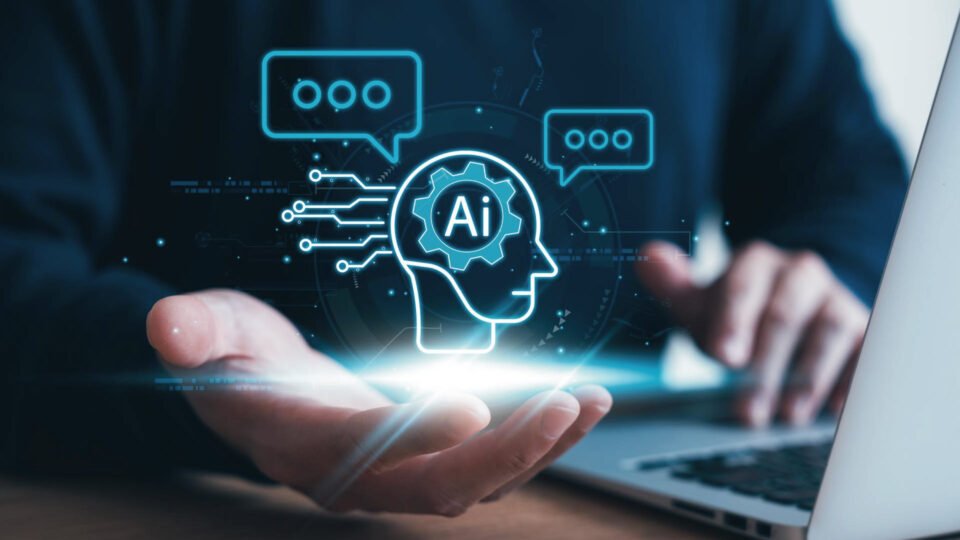Learn how AI augmentation is transforming marketing, optimizing campaigns, and reshaping team roles.
Marketing organizations are increasingly adopting artificial intelligence to help analyze data, uncover insights, and deliver efficiency gains, all in the pursuit of optimizing their campaigns. The era of AI augmentation to assist marketing professionals will continue to gain momentum for at least the next decade. As AI becomes more pervasive, this shift will inevitably reshape the makeup and focus for marketing teams everywhere.
Humans will retain control of the marketing strategy and vision, but the operational role of machines will increase each year. Lower-level administrative duties will largely disappear as artificial intelligence tools become more deeply entwined in the operations of marketing departments. In the same way, many analytical positions will become redundant as smart chatbots assume more daily responsibilities.
However, the jobs forecast is not all doom and gloom because the demand for data scientists will explode. The ability to aggregate and analyze massive amounts of data will become one of the most sought-after skillsets for the rest of this decade. The fast-growing demand for data analysis will remain immune to economic pressures, and those kinds of job positions will be less susceptible to budget cuts.
Effects of the AI Rollout on Marketing Functions
As generative AI design tools are increasingly adopted, one thorny issue involves copyright protection. Many new AI solutions scrape visual content without being subjected to any legal or financial consequences. In the year ahead, a lot of energy and effort will be focused on finding a solution to the copyright problem by clarifying ownership and setting out boundaries for AI image creation. This development will drive precious cost and time savings by allowing marketing teams to embrace AI design tools more confidently, without the fear of falling into legal traps.
In addition, AI will become more pivotal as marketing teams struggle to scale efforts for customer personalization. The gathered intelligence from improved segmentation will enable marketing executives to generate more customized experiences. In addition, the technology will optimize targeted advertising and marketing strategies to achieve higher engagement and conversion levels.
By the end of 2024, most customer emails will be AI-generated. Brands will increasingly use generative AI engines to produce first drafts of copy for humans to review and approve. However, marketing teams will have to train large language models (LLMs) to fully automate customer content as a way of differentiating their brands. By 2026, this practice will be commonplace, enabling teams to shift their focus to campaign management and optimization.
AI Marketing Trends Impact Vertical Industry Groups
In addition to affecting job roles, the AI revolution is expected to supercharge marketing functions across nearly every type of industry. Two obvious examples include the retail and healthcare sectors. The retail industry has been quick to integrate AI to deliver efficiencies and increase sales. One emerging innovation is to combine neural networks with a shopper and a product to create new retail marketing experiences. For example, starting in 2024, you can expect an AI assistant to showcase an item of clothing on a model with similar dimensions to see exactly how it will look in various poses. Most industry watchers believe that such immersive, highly personalized virtual experiences will be the future of retail.
AI is also creating a radical new reality for the healthcare industry. For instance, digital twins are becoming increasingly ubiquitous for researchers, physicians, and therapists. A digital twin is a virtual model that accurately replicates a physical object or system. In this way, users can simulate physical processes through digital twins to test various outcomes without involving actual products or people, which greatly reduces operational costs and risks to public safety. For example, AI-powered digital twins could usher in new ways of marketing healthcare services for an aging population, by allowing people to live independently for longer. Or such twins might be used for future drug development projects.
AI will also play a pivotal role in the early diagnosis of potential health issues. For example, full-body MRIs will tap into the ability of AI to identify, analyze, and predict data patterns to help diagnose diseases long before any symptoms are visible to the human eye. In addition, AI will take a more prominent role in assisting medical staff to understand and interpret findings and provide treatments and care recommendations. All of these AI benefits will help sales and marketing teams to craft new messages that can communicate such considerable advantages to consumers.
Artificial intelligence engines have already upended marketing practices based on their extraordinary capacity for data analysis and efficiency, and this growth trend is only expected to continue in the coming years. To keep up with these technical developments, marketing professionals should become more comfortable using the AI tools which are rapidly remaking the entire marketing landscape.
Explore AITechPark for top AI, IoT, Cybersecurity advancements, And amplify your reach through guest posts and link collaboration.

